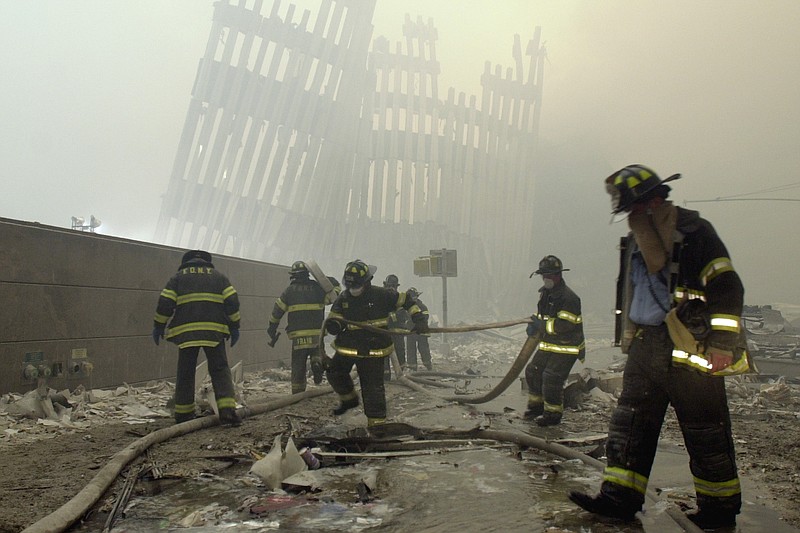These annual Sept. 11, 2001, commemorations have always been momentous and solemn occasions, and the attention of the American people is where it deserves to be - on the men, women and children who needlessly died that day. It is right and proper that our focus should be first and foremost on the tragic loss of those lives.
It is also right and proper that we should reflect on the lessons of 9/11 and how it came to pass that more than 2,600 Americans were killed over the course of a few hours that day. Even more importantly, we should ask ourselves whether the United States has learned the lessons of 9/11, and whether our government lived up to the commitment that encapsulates the post-9/11 admonition of the American people: "Never Forget."
But it seems that our government may have forgotten the central lesson of 9/11 - that loosely governed lands over which the U.S. has little or no intelligence visibility create the permissive environment most attractive to terrorist organizations that desire to strike America. The collapse of Afghanistan into the arms of the Taliban has once again set the stage for that nation to host terrorist groups that target the West.
Already there are reports that the Taliban's return has inspired and boosted the morale of militants in Southeast Asia, some of whom plan to travel to Afghanistan for training. It may be that in no time al-Qaida reconstitutes itself and, harbored by the Taliban, once again becomes a threat to America and its allies. The Islamic State and other terrorist groups may also seek sanctuary in Afghanistan.
The U.S. intelligence community has long believed that it would take up to two years after a U.S. withdrawal from Afghanistan before a reconstituted al-Qaida could pose a threat to America. Of course, the American people are right to be skeptical of such assessments given that President Joe Biden recently predicted it was "highly unlikely" that the Taliban would overrun Afghanistan and own the whole country.
The Biden administration has given assurances to the American people that its botched withdrawal from Afghanistan will not result in a repeat of the past. U.S. Secretary of State Antony Blinken recently informed us that the Taliban "has made a commitment to prevent terrorist groups from using Afghanistan as a base for external operations that could threaten the United States or our allies, including al-Qaida and the Taliban's sworn enemy, ISIS-K."
Perhaps President Biden and Secretary Blinken actually trust the Taliban, as ridiculous as that may seem. But the American people are far less sanguine about promises made by militant Islamists who enforce a brutal, fundamentalist version of Sharia law.
Blinken also assures us that the U.S. will "remain vigilant in monitoring threats ourselves. And we'll maintain robust counterterrorism capabilities in the region to neutralize those threats." But Americans are right to be concerned that vigilance and supposed regional capabilities are sufficient to protect the homeland in the absence of a U.S. Embassy, a CIA base of operations and diminished surveillance capacity in the mountains and valleys of Afghanistan.
In the days following 9/11, President George W. Bush presented a series of ultimatums to the Taliban: deliver the leaders of al-Qaida to America; close every terrorist camp; release all foreign nationals who have been unjustly imprisoned. Today the Taliban are back in control, al-Qaida is set for a resurgence, and Americans and other foreign nationals are stranded.
It remains unclear what lessons the Biden administration has learned, if any. It's up to President Biden to ensure the security of Americans for the next few years and to "Never Forget" what happened 20 years ago. Based on his track record, however, we are in for a dangerous three years.
Steven Groves is the Margaret Thatcher Fellow at The Heritage Foundation.
Tribune Content Agency
